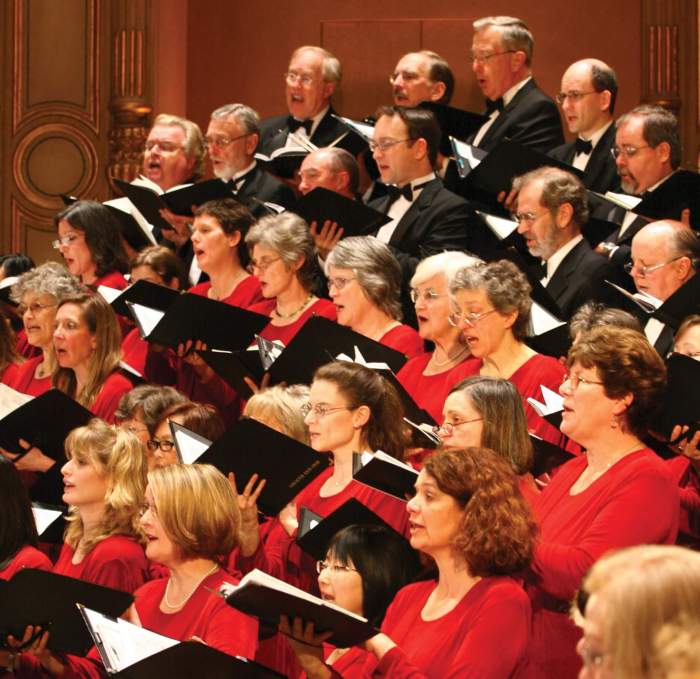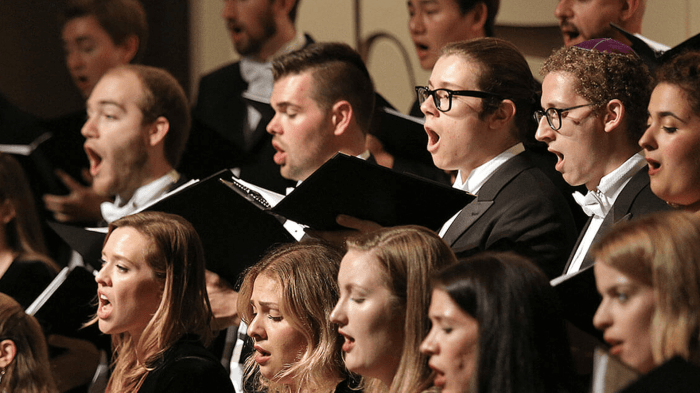Embark on an enlightening journey into the enigmatic world of sacred music as we unravel the intricacies of “some sacred music crossword clue.” This exploration delves into the historical evolution, diverse types, notable composers, and profound influence of sacred music, promising a captivating exploration that illuminates its significance and enduring legacy.
Sacred Music Overview: Some Sacred Music Crossword Clue
Sacred music refers to musical compositions intended for religious or spiritual purposes. It holds profound significance in various cultures and traditions, serving as an integral part of rituals, ceremonies, and personal devotion. The historical evolution of sacred music spans centuries, with roots in ancient civilizations and evolving alongside religious practices.
Types of Sacred Music
Sacred music encompasses a diverse range of styles and genres, categorized based on their religious affiliations, cultural contexts, and musical characteristics. Examples include:
- Choral Music:Polyphonic or homophonic compositions for choirs, such as Gregorian chant, Renaissance motets, and Baroque oratorios.
- Hymns:Simple, congregational songs used for communal worship, often with lyrics based on religious texts.
- Psalms:Poetic texts from the Bible set to music, often sung in liturgical settings.
- Spirituals:African-American folk songs with religious themes, characterized by call-and-response patterns and emotional intensity.
- Qawwali:Devotional music from the Sufi tradition, featuring rhythmic chanting and energetic performances.
Composers of Sacred Music

Throughout history, numerous renowned composers have dedicated their talents to creating sacred music. Notable figures include:
- Johann Sebastian Bach:German Baroque composer known for his intricate fugues, cantatas, and passions.
- Wolfgang Amadeus Mozart:Austrian Classical composer who composed sacred choral works, including the Requiem.
- Giuseppe Verdi:Italian Romantic composer whose operas often explored religious themes.
- Francis Poulenc:French composer of the 20th century, known for his sacred choral works, such as the Gloria.
- Arvo Pärt:Estonian contemporary composer whose minimalist and meditative compositions have gained widespread recognition.
Sacred Music in Religious Ceremonies
Sacred music plays a crucial role in religious rituals and ceremonies, enhancing the spiritual experience and fostering a sense of community. It:
- Sets the Ambiance:Music creates a sacred atmosphere, contributing to the solemnity and reverence of religious ceremonies.
- Facilitates Worship:Music engages emotions and helps worshippers connect with the divine, fostering a sense of devotion and awe.
- Marks Ritual Moments:Music accompanies specific moments in religious ceremonies, signaling transitions, emphasizing key events, and providing a sense of structure.
- Promotes Unity:Congregational singing and shared musical experiences foster a sense of community and collective worship.
Influence of Sacred Music on Secular Music

Sacred music has significantly influenced the development of non-religious music, shaping genres and musical techniques. Examples include:
- Polyphony:The use of multiple independent melodic lines, developed in sacred choral music, later influenced secular genres such as madrigals and opera.
- Harmonic Progression:The development of harmonic structures in sacred music laid the foundation for tonal harmony used in later secular music.
- Instrumentation:The use of instruments in sacred music, such as organs and brass ensembles, later found its way into secular compositions.
- Vocal Techniques:Bel canto singing techniques, originally developed for sacred choral works, were adopted by opera singers and influenced vocal performance in other genres.
Contemporary Sacred Music
Contemporary sacred music continues to evolve, reflecting changing cultural and technological landscapes. Trends include:
- Cross-Cultural Influences:Sacred music incorporates elements from diverse religious traditions, fostering interfaith dialogue and understanding.
- Use of Technology:Electronic instruments, sound effects, and digital recording techniques are increasingly used in sacred music, expanding its sonic possibilities.
- Focus on Inclusivity:Contemporary sacred music often seeks to be accessible and welcoming to a wide range of worshippers, embracing diverse musical styles and languages.
- Community Involvement:Sacred music is increasingly seen as a collaborative effort, involving musicians, composers, and worshippers in its creation and performance.
FAQ Explained
What defines sacred music?
Sacred music encompasses musical compositions specifically created for religious or spiritual purposes, expressing devotion, reverence, and the connection to the divine.
How has sacred music evolved over time?
Sacred music has undergone a rich evolution, from ancient chants and hymns to elaborate polyphonic masses and contemporary compositions, reflecting the changing religious practices and cultural influences of different eras.